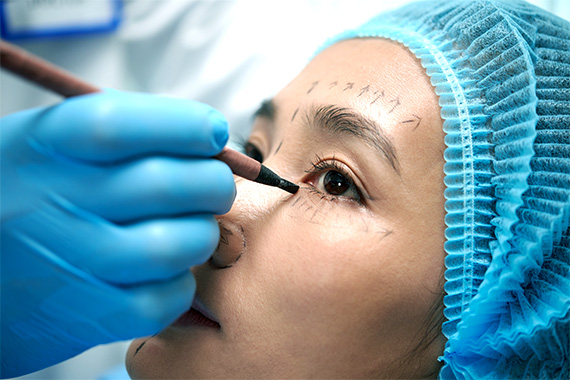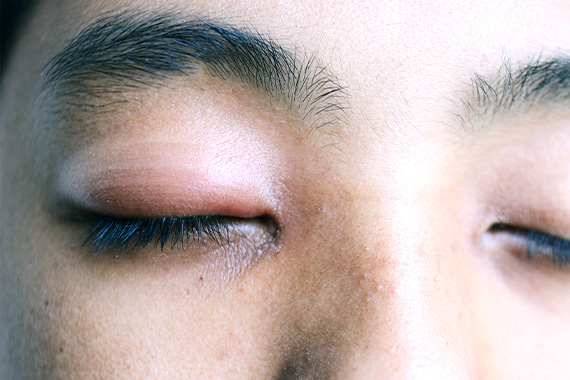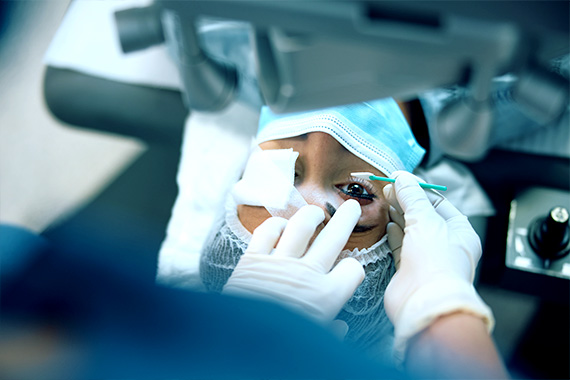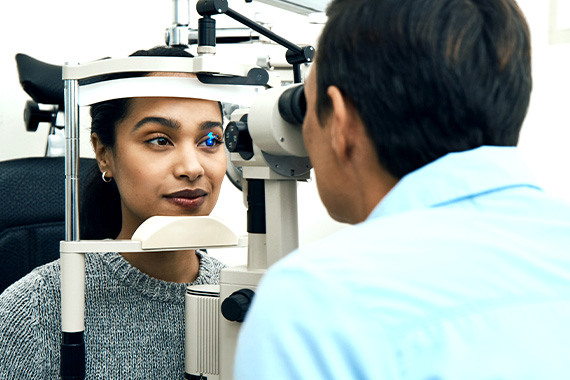Oculoplasty Treatment, also known as ophthalmic plastic surgery, involves a range of surgical procedures designed to address conditions related to the eyelids, tear ducts, and the orbit (the area around the eye). Early diagnosis and treatment of these conditions are crucial to prevent complications that could impact vision and eye health. At Shree Ramkrishna Netralaya, we offer comprehensive Oculoplasty treatments & surgery, using the latest diagnostic technologies to ensure accurate diagnosis and effective treatment plans tailored to each patient's needs.


Oculoplasty is diagnosed through a thorough eye examination, where the oculoplasty specialist assesses the condition of the eyelids, tear ducts, and orbital area. This comprehensive eye exam includes visual acuity tests, evaluation of eye movements, and a detailed assessment of the eyelid function. The oculoplasty specialist may also check for any abnormalities in the eye socket and surrounding structures. In addition to the standard eye exam, specialized tests such as imaging studies (CT or MRI scans) and tear duct examinations may be performed. These tests provide a detailed view of the structures around the eye, helping to detect any underlying issues that require surgical intervention.
Oculoplasty treatment is sought for various conditions related to the eye and its surrounding structures. Some of the conditions that may require Oculoplasty include:
Shree Ramkrishna Netralaya employs advanced diagnostic technologies to ensure precise evaluation and treatment planning for oculoplasty cases:
A surgical procedure to correct droopy eyelids by removing excess skin, muscle, and sometimes fat. It enhances vision and improves the appearance of the eyes.
Used to treat conditions like eyelid spasms (blepharospasm) by temporarily paralyzing the muscles around the eyes, reducing involuntary movements.
Injectable treatments used to restore volume and smooth out wrinkles around the eyes, often as a part of cosmetic Oculoplasty procedures.
A surgical procedure to relieve pressure on the optic nerve caused by conditions like thyroid eye disease, preventing vision loss and improving eye appearance.


After Oculoplasty surgery, patients can expect a recovery period that varies depending on the specific procedure performed. Typically, there may be some swelling, bruising, and discomfort around the eyes, which can last for a few days to a couple of weeks. Your doctor will prescribe medications to manage pain and prevent infection, and you may be advised to use cold compresses to reduce swelling. It's important to follow all post-operative care instructions, including attending follow-up appointments to monitor healing. Patients should avoid strenuous activities, heavy lifting, and direct sunlight exposure during the recovery period. Depending on the procedure, the full recovery may take several weeks, with gradual improvement in the appearance and function of the eyes.
Shree Ramkrishna Netralaya is home to a team of experienced Oculoplasty specialists who are experts in diagnosing and treating a wide range of conditions affecting the eyelids, tear ducts, and orbit.
Choosing Shree Ramkrishna Netralaya in Thane for your Oculoplasty treatment ensures access to advanced diagnostic technologies, experienced specialists, and personalized care. Our comprehensive approach to treatment and commitment to patient satisfaction make us the best choice for successful Oculoplasty procedures. Schedule your consultation today to take the first step toward better eye health.
Oculoplasty treats conditions affecting the eyelids, tear ducts, and orbital area, including droopy eyelids, blocked tear ducts, and eye socket disorders.
Oculoplasty surgery is usually performed under local or general anesthesia, so patients do not feel pain during the procedure. Post-surgery discomfort can be managed with prescribed painkillers.
Recovery time varies depending on the procedure, but most patients experience swelling and bruising for a few days to weeks, with full recovery taking several weeks.
As with any surgery, there are risks, including allergic reactions, temporary vision disturbances, and infection, but these are rare and manageable with proper care.
Yes, procedures like blepharoplasty can improve vision by correcting droopy eyelids that may obstruct your field of view.
While Shree Ramkrishna Netralaya is your top choice for eye care in Mumbai, you may also consider our other reputable clinics and hospitals near you.
Address:
201 & 202 Elmer #Plot #563, Central Avenue, Corner of, 11th Rd, Chembur, 400071
Phone: 082917 14838
Timing: Mon-Sat- 10 a.m. To 8 p.m.
Address:
Near Risk Care Hospital, Near Makhamali Talao, LBS Marg, Thane, W, Mumbai, Maharashtra 400601
Phone: 02225441139
Timing: Mon-Sat- 11 a.m. To 8 p.m.